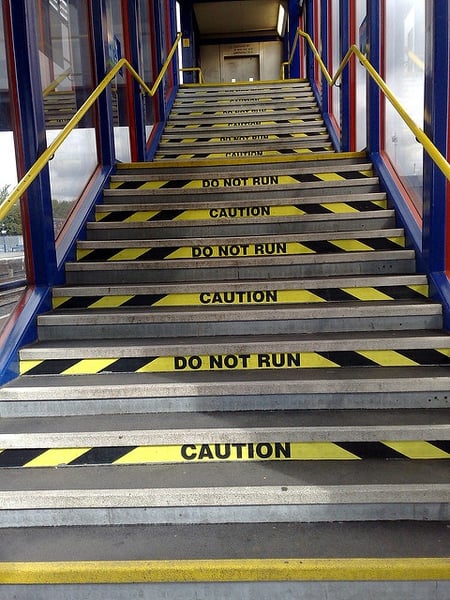
You got hurt on the job and your fellow railroad workers are telling you to get a lawyer.
Sounds like good advice since recovering from and paying for your injury could be harder than you thought. But be careful. There are a few railroad lawyers, aka FELA attorneys, out there who don’t have your best interests in mind.
Just as there are lots of good things to look for in a railroad lawyer, there are equally as many bad traits that should make your radar go off and have you looking for the door. In more than 15 years representing injured rail workers in trials, I have seen some sketchy tactics by other attorneys and I’ve seen some of their clients suffer because of it.
Here are five traits I would watch out for when choosing a lawyer:
1. The lawyer who says, “I’ve got lots of associate attorneys to help with your case.”
An associate attorney is a junior attorney who works at the direction of a partner. If you go to a lawyer, you will usually meet with the partner, and maybe an associate. A firm with one or two associate attorneys is fine. That means the information will be closely shared and there are good lines of communication. But too many different people means the message gets lost. It also usually means the grunt work, which unfortunately is where much of success comes from, is done by someone without enough experience to know how or where to push for the buried treasure.
2. The lawyer who gives an estimate of case value too early.
If I ask you how much my car is worth, should I expect you to give me a number immediately? Even the year, make and model number, along with mileage, is not enough. Has the car been in an accident? Was it kept up? What kind of driving? Was I the only owner? Your case is the same way. You can typically get an outside number, but a realistic evaluation has to come after the information is collected. I have had clients forget surgeries, forget car accidents, forget lost time injuries. This all comes out in a through case evaluation. A good attorney holds off on recommending numbers until the important facts are all in. Selling you on a big number is just that, an empty sell. Click here to find out more about determining the value of your case.
3. The lawyer who promises or guarantees an outcome of your case.
A trial lawyer will tell you there is no such thing as a promised outcome. Juries are notoriously unpredictable. As an attorney, you certainly do what you can to limit the variables, but in the end there is no guarantee. Evaluating options and taking calculated educated risks is what trial attorneys do. But no seasoned trial lawyer will guarantee an outcome. Nor should you ask for it, if you have been educated as to what to expect. Click here to learn more about the risks of going to trial.
4. The lawyer who can’t answer some basic questions.
There are certain basic items any FELA lawyer you are considering must have. Go to your initial meeting or initial phone call with those basic questions written down so you are sure you get answers.
Questions like:
- How long do you have to file suit?
- How long will the lawsuit last?
- Has the lawyer ever handled a similar injury or accident?
- Are there any federal regulations the attorney thinks might be applicable?
- Is there assistance with disability payments and where can you get more information?
Choosing a lawyer is more involved than you might have originally thought. The goal is to find someone you feel comfortable with. You need a lawyer you can tell everything to, who at the same time is asking you questions you didn’t know you should be answering.
5. An attorney who won't give you free advice
One of the things I do daily is talk to workers about potential cases and help them sort out their FELA injury or whistleblower questions, without charging a dime. That's because neither I, nor the worker, knows right away if their case should be persued. In telling me his story I can explain to a worker how the law protects him and give him the resources to take whatever the next step is, be it pursuing a lawsuit or filing a claim on his own without a lawyer. And frankly, that's helpful to me, because one more worker who knows his rights is one more worker who stands up against carrier abuses like dangerous working conditions or retribution for reporting a safety hazard. Informed workers make better clients in the future.
Any lawyer worth his or her salt will give some time to answer questions, for free.
If you have questions about how to file your own injury claim against your carrier, use this checklist to gather what you'll need BEFORE you got to the claims agent. It will help you determine if you need to call a lawyer for more help.
Photo: markhillary









